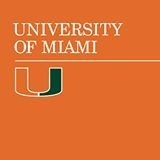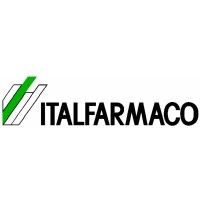预约演示
更新于:2025-05-07
HDACs
更新于:2025-05-07
基本信息
别名 Histone deacetylases、KDAC、KDACs + [2] |
简介- |
关联
654
项与 HDACs 相关的药物靶点 |
作用机制 HDAC抑制剂 |
原研机构 |
在研适应症 |
最高研发阶段批准上市 |
首次获批国家/地区 中国 |
首次获批日期2024-04-24 |
靶点 |
作用机制 HDAC抑制剂 |
在研机构 |
原研机构 |
最高研发阶段批准上市 |
首次获批国家/地区 美国 |
首次获批日期2024-03-21 |
靶点 |
作用机制 HDAC抑制剂 |
最高研发阶段批准上市 |
首次获批国家/地区 美国 |
首次获批日期2015-02-23 |
2,153
项与 HDACs 相关的临床试验NCT06797817
Tributyrin Treatment in Mild Alzheimer Disease: Assessment of Butyric Acid Effects Via the Gut-Brain
The goal of this clinical trial is to learn if tributyrin can help prevent or mitigate cognitive decline in individuals with mild Alzheimer's disease (AD). The trial will also examine the safety and effects of tributyrin on inflammation and gut microbiota. The main questions it aims to answer are:
Does tributyrin improve cognitive function in patients with mild AD? Does tributyrin reduce inflammation and oxidative stress? How does tributyrin affect gut microbiota and intestinal permeability? Researchers will compare tributyrin to a placebo (a look-alike substance that contains no active ingredient) to evaluate its effectiveness.
Participants will:
Take tributyrin or a placebo every day for 12 weeks. Undergo assessments of cognitive function, blood markers (such as BDNF and GFAP), and gut health.
The findings are expected to provide insight into the potential of tributyrin as a preventive intervention for Alzheimer's disease.
Does tributyrin improve cognitive function in patients with mild AD? Does tributyrin reduce inflammation and oxidative stress? How does tributyrin affect gut microbiota and intestinal permeability? Researchers will compare tributyrin to a placebo (a look-alike substance that contains no active ingredient) to evaluate its effectiveness.
Participants will:
Take tributyrin or a placebo every day for 12 weeks. Undergo assessments of cognitive function, blood markers (such as BDNF and GFAP), and gut health.
The findings are expected to provide insight into the potential of tributyrin as a preventive intervention for Alzheimer's disease.
开始日期2025-09-01 |
申办/合作机构 |
NCT06932757
Phase 2 Trial of Adjuvant Quisinostat in High-Risk Uveal Melanoma
The purpose of this study is to see if giving participants quisinostat will prevent participants' uveal melanoma tumor from spreading. The researchers want to find out the effects that quisinostat has on participants' condition.
开始日期2025-06-01 |
申办/合作机构  University of Miami University of Miami [+1] |
NCT05608369
A Phase 2 Study of Vorinostat in Combination With Chemoradiation in Patients With Locally Advanced HPV Negative HNSCC
The purpose of this study is to learn more about a drug called Vorinostat (an experimental drug) in combination with chemoradiation. The intention of this study is to learn if this drug is safe for the participants and whether this drug with chemoradiation is able to further increase the clinical efficacy of chemoradiation, which is an approved therapy. The main question it aims to answer is: How may Vorinostat interact with standard chemotherapy and radiation therapy in head and neck cancer? Participants will receive the study drug (Vorinostat) as a pre-treatment, followed by standard chemoradiation.
开始日期2025-06-01 |
100 项与 HDACs 相关的临床结果
登录后查看更多信息
100 项与 HDACs 相关的转化医学
登录后查看更多信息
0 项与 HDACs 相关的专利(医药)
登录后查看更多信息
53,235
项与 HDACs 相关的文献(医药)2025-12-31·Journal of Enzyme Inhibition and Medicinal Chemistry
Design and synthesis of novel HDAC6 inhibitor dimer as HDAC6 degrader for cancer treatment by palladium catalysed dimerisation
Article
作者: Yu, Chao-Wu ; Lin, Ching ; Hsu, Yu-Tung ; Wu, Sian-Siou ; Fan, Kuo-Chen ; Hsu, Jui-Ling ; Guh, Jih-Hwa ; Lin, Miao-Hsia
2025-12-31·Epigenetics
Alpha-linolenic acid-mediated epigenetic reprogramming of cervical cancer cell lines
Article
作者: Kaul-Ghanekar, Ruchika ; Ulhe, Amrita ; Chaudhary, Amol ; Raina, Prerna
2025-12-31·Virulence
The inhibitory and anti-inflammatory effects of TMP269 on peste des petits ruminants virus replication
Article
作者: Meng, Xuelian ; Ke, Qunhua ; Sun, Yuefeng ; Wang, Yang ; Qu, Min ; Li, Miaomiao
905
项与 HDACs 相关的新闻(医药)2025-05-04
·生物谷
在这项研究中,研究人员发现,一种名为YAP的蛋白质在胆汁酸代谢中扮演着关键角色,YAP是Hippo信号通路的核心组成部分,这一通路在调控细胞生长和癌症发展中起着至关重要的作用。
作为机体最大的内脏器官,肝脏不仅负责解毒、代谢,还承担着一个鲜为人知却至关重要的任务,即生产胆汁。胆汁是由机体肝脏分泌的的一种特殊液体,其不仅能帮助机体消化脂肪,还在调节代谢过程中发挥着类似激素的作用。然而,当胆汁酸(胆汁的主要成分)的平衡被打破时,可能会引发一系列严重的肝脏疾病,甚至包括肝细胞癌(HCC)等疾病,肝细胞癌是一种最常见的肝癌类型。
随着现代生活方式的改变,肝脏疾病的发生率逐年上升,尤其是非酒精性脂肪性肝病(NAFLD)和肝细胞癌(HCC)。近年来科学家们逐渐认识到,胆汁酸代谢的紊乱可能是这些疾病的关键因素之一;胆汁酸不仅能帮助消化脂肪,还在调节肝脏代谢、免疫反应和细胞增殖中发挥重要作用;然而当其平衡被打破时就会引发肝脏损伤、炎症,甚至癌变。
近日,一篇发表在国际杂志Nature Communications上题为“Disrupting bile acid metabolism by suppressing Fxr causes hepatocellular carcinoma induced by YAP activation”的研究报告中,来自哈佛大学等机构的科学家们发表了一项开创性的研究,揭示了胆汁酸代谢失衡与肝癌之间的直接关联。
在这项研究中,研究人员发现,一种名为YAP的蛋白质在胆汁酸代谢中扮演着关键角色,YAP是Hippo信号通路的核心组成部分,这一通路在调控细胞生长和癌症发展中起着至关重要的作用。YAP的激活会抑制一种名为FXR(法尼酯X受体)的核受体,而FXR是维持胆汁酸平衡的关键调节器,当YAP被激活时就会干扰FXR的功能,从而导致胆汁酸的过度产生和积累,进而引发肝脏纤维化、炎症,最终可能导致肝癌。研究人员通过一系列实验模型验证了这一发现,他们指出,通过激活FXR并抑制YAP的抑制功能(比如通过抑制HDAC1),或者增加胆汁酸外排蛋白BSEP的表达就能有效减少肝脏损伤和癌症进展,这些发现不仅揭示了YAP在胆汁酸代谢中的意外作用,还为开发新的肝癌治疗方法提供了潜在的靶点。
肝细胞中YAP的激活可引起严重的胆汁淤积
本文研究揭示了YAP与FXR之间的复杂相互作用,以及这种相互作用如何影响胆汁酸代谢和肝癌的发生。研究人员发现,YAP的激活不仅能直接抑制FXR的转录活性,还会通过招募组蛋白去乙酰化酶HDAC1来进一步增强这种抑制作用,这种抑制作用就会导致胆汁酸的过度积累进而激活YAP从而形成一个恶性循环,并加速肝癌的发展。此外,研究者还发现,通过药物激活FXR或抑制HDAC1就能打破这一恶性循环并减少胆汁酸的积累,从而减轻肝脏损伤和癌症进展,这些发现不仅为肝癌的治疗提供了新的思路,也为其它与胆汁酸代谢紊乱相关的疾病(如非酒精性脂肪性肝病)提供了潜在的治疗策略。
YAP与FXR之间的相互作用为肝癌的治疗带来了新的希望,通过激活FXR或抑制YAP的抑制功能,科学家们有望开发出新型药物来打破胆汁酸的恶性循环,从而减轻肝脏损伤和癌症进展。
研究者Yang教授表示,这一发现不仅为肝癌治疗提供了新的靶点,也为研究YAP在代谢调控中的作用提供了新的视角。随着对胆汁酸代谢和YAP功能的进一步研究,科学家们有望开发出更有效的治疗方法从而改善肝癌患者的预后。这项研究不仅揭示了肝脏疾病的复杂机制,也为未来的医学研究和临床应用提供了新的方向。正如Yang教授所说:“这一发现让我们看到了通过激活FXR来治疗肝癌的希望,这非常令人兴奋。”(生物谷Bioon.com)
参考文献:
Liu, Y., Zhu, J., Jin, Y. et al. Disrupting bile acid metabolism by suppressing Fxr causes hepatocellular carcinoma induced by YAP activation. Nat Commun 16, 3583 (2025). doi:10.1038/s41467-025-58809-z
2025-05-01
·小药说药
-01-引言肿瘤是一个复杂的生态系统,其中癌症细胞和多种宿主细胞之间的相互作用影响疾病的进展和治疗反应。在肿瘤进展过程中,癌症细胞采用多种途径来逃避免疫攻击,例如下调抗原提呈机制或诱导抑制性免疫检查点分子,而免疫压力在肿瘤的发展和转移扩散过程中促进克隆进化。同时,癌症细胞劫持免疫细胞,如中性粒细胞、巨噬细胞和调节性T细胞(Treg),以协调免疫抑制性肿瘤微环境(TME)。这反过来促进免疫逃逸,促进血管和细胞外基质的重塑,并支持癌症进展和治疗抵抗。异常免疫反应被广泛认为是癌症的标志,并为癌症治疗提供了有吸引力的靶点。因此,我们有必要深入了解癌症细胞的内在特征,包括遗传变异、信号通路调节和代谢改变,它们在协调免疫景观的组成和功能状态方面发挥关键作用,并影响免疫调节策略的治疗效益。-02-一、遗传改变癌基因、抑癌基因或DNA损伤修复基因中的特定癌症细胞固有遗传改变有助于调节癌症免疫状况。癌基因癌症细胞中不同的致癌基因通过不同的机制调节免疫行为,这些机制因癌症类型、癌症分期和癌症部位而异。例如,KRAS突变通过IL-8诱导的炎症、IL-6介导的巨噬细胞和Treg细胞浸润、GM-CSF诱导的Gr1+CD11b+髓系细胞的扩增、IL-10和TGF-β介导的CD4+CD25−T细胞向Treg细胞的转化、以及抑制干扰素调节因子2(IRF2)和随后产生的CXCL3,从而导致CD8+T细胞抑制,髓系衍生抑制细胞(MDSCs)的迁移增强。MYC通过增强CD47和PD-L1表达来抑制抗肿瘤免疫,从而削弱巨噬细胞和T细胞的募集。此外通过分泌IL-1β,阻断细胞毒性T细胞、NK细胞和树突状细胞的浸润,并增强支持肿瘤的巨噬细胞和中性粒细胞的浸润。KRAS突变和MYC还通过与MYC相互作用的锌指蛋白1(MIZ1)产生协同作用,介导IFN-β的抑制以及CCL9和IL-23的分泌,增强PD-L1+巨噬细胞浸润,抑制B细胞、T细胞和NK淋巴细胞驱动免疫逃避。此外,突变的表皮生长因子受体(EGFR)通过降低PD-L1表达来驱动免疫逃逸,通过IRF1介导的CXCL10下调阻碍CD8+T细胞募集,并通过CD73依赖性腺苷生成或JNK–JUN介导的CCL2上调促进Treg细胞浸润。人表皮生长因子受体2(HER2)扩增导致主要组织相容性复合物I类(MHC-I)的下调和TANK结合激酶1(TBK1)的磷酸化,其抑制下游cGAS–STING信号传导和IFNβ产生,导致免疫逃避。抑癌基因抑癌基因通过不同的环境依赖机制调节免疫。例如,研究发现Trp53的缺失通过WNT配体介导的巨噬细胞极化和IL-1β的产生驱动免疫抑制,导致中性粒细胞的全身聚集,从而CD8+T细胞的抑制和CXCL17、CCL3、CCL11、CXCL5和M-CSF介导的巨噬细胞和Treg细胞的募集。TP53的突变与PD-L1表达相关,并通过CXCL2分泌调节免疫抑制中性粒细胞的募集,通过NF-κB介导的IL-8调节慢性炎症,并且结合TBK1抑制下游cGAS–STING–IRF3信号传导和IFN-β1的产生,其减少T细胞和NK细胞浸润并增强巨噬细胞极化。相反,TP53的功能增益突变与新抗原表达,以及IFN-γ和CXCL9表达相关,这支持抗肿瘤免疫。在KRAS突变肿瘤中,丝氨酸/苏氨酸激酶11(STK11)的失活通过粒细胞集落刺激因子(G-CSF)、IL-6和CXCL7的表达刺激免疫抑制中性粒细胞的积聚。此外,KRAS和STK11突变肿瘤中PD-L1的表达会导致对免疫检查点阻断(ICB)的抵抗。最后,PTEN丢失通过CCL2和VEGF的分泌减少CD8+T细胞浸润,并激活PI3K信号增强PD-L1的表达,以及NF-κB介导的CCL20、CXCL1、IL-6和IL-23分泌增强Treg细胞和髓系细胞浸润,并通过IL-1β和M-CSF驱动局部MDSC扩增。DNA损伤修复机制的遗传改变癌症细胞中的错配修复(MMR)缺陷会导致突变、新抗原和细胞中DNA的积累,从而触发cGAS–STING依赖性的T细胞浸润,免疫检查点分子如PD-1、PDL1、CTLA-4和LAG-3在浸润免疫细胞上的表达增强。在BRCA1突变的肿瘤中,双链DNA积聚在细胞中,并引发与CD8+T细胞浸润相关的cGAS–STING介导的炎症反应。cGAS–STING还促进免疫抑制性髓系细胞、巨噬细胞、Treg细胞和耗竭的PD1+T细胞的募集,以及VEGF的上调。DNA传感基因和下游介质(如IFN-β或CCL5)的遗传缺失或表观遗传沉默可介导BRCA1突变肿瘤的免疫逃逸,以及PD-L1的表达增强。相反,BRCA2突变肿瘤显示cGAS–STING介导的各种T细胞群的富集。-03- 二、表观遗传修饰除了遗传改变外,表观遗传改变也是癌症细胞的一个共同特征,在核结构和基因转录中起着至关重要的作用。癌症表观基因组会发生各种变化,包括DNA甲基化、组蛋白修饰、染色质重塑和非编码RNA的失调。越来越多的证据表明,癌症细胞中发生的表观遗传变化也会影响与免疫系统的串扰。DNA甲基化由于超级增强子(SE)的形成,炎症基因的DNA去甲基化导致CXC趋化因子配体(CXCL)介导的中性粒细胞募集,而总体低甲基化与PD-L1、IL-6和VEGF的表达增强相关。而DNA(超)甲基化可降低编码PD-L1的基因CD274和编码MHC-I的HLA基因的表达,而编码cGAS–STING的基因通过启动子甲基化的转录抑制增强MHC-I表达和T细胞识别。异柠檬酸脱氢酶1(IDH1)或IDH2的突变通过将α-酮戊二酸转化为(R)-2-羟基戊二酸(2HG)来诱导全局超甲基化。而编码PD-L1、CXCL9和CXCL10免疫相关基因的转录抑制会损害IDH突变肿瘤中CD8+T细胞的浸润,G-CSF的转录激活会增强非抑制性中性粒细胞和前中性粒细胞的浸润。组蛋白甲基化组蛋白H3在Lys27发生三甲基化(H3K27me3),在DNA低甲基化的背景下,抑制编码MHC-I、CXCL9和CXCL10的基因,并减少CD8+T细胞浸润。癌症细胞中的多梳抑制复合物2(PRC2)活性介导H3K27me3,抑制G-CSF和IL-6的表达并诱导性一氧化氮合成酶阳性(iNOS+)巨噬细胞、中性粒细胞和T细胞的招募。ARID1A是SWI/SNF复合物的DNA结合亚基, ARID1A的遗传突变会抑制IFN-γ诱导基因转录和CXCL9、CXCL10和CXCL11的表达,从而抑制T细胞浸润。组蛋白乙酰化组蛋白乙酰化通过组蛋白乙酰转移酶1(HAT1)调节免疫应答,HAT1介导CD274和组蛋白去乙酰化酶(HDACs)的表达,HDACs抑制编码PD-L1和PD-L2的基因的表达,以及CCL5、CXCL9和CXCL10的表达,从而损害T细胞浸润。-04-三、细胞内信号通路癌症细胞的一个关键特征是异常信号传导,这是由编码或非编码DNA区域的遗传或表观遗传改变以及生长因子和代谢等外部信号驱动的。WNT–β-catenin通路激活的癌症细胞内固有WNT–β-catenin信号与免疫排斥相关,但其潜在机制仍不明确。WNT–β-catenin通过诱导ATF3表达阻断CD103+树突状细胞的募集和T细胞启动,并抑制CCL4或CCL5分泌。TGF-β通路淋巴细胞抗原LY6K和LY6E在癌症细胞中的过表达激活TGF-β信号转导和SMAD2/3磷酸化,导致NK细胞活性降低和Treg细胞浸润增强。αVβ6整合素的上调通过激活TGF-β和SMAD2/3磷酸化来调节SOX4的表达,SOX4抑制多种I型干扰素诱导基因和编码MHC-I的基因,同时增强PD-L1表达,这会损害细胞毒性T细胞介导的免疫。此外,癌症细胞衍生的TGF-β介导CD4+T细胞向Treg细胞的转化。而SMAD4的敲除会导致肿瘤细胞中TGF-β信号的失活,这增强了CCL9的表达和未成熟髓系细胞的募集。NF-κB信号通路PD-L1的表达受癌症细胞内NF-κB信号转导的转录调控,其途径是通过MUC1-c与CD274启动子上的NF-κB亚基p65的直接结合,或通过TGF-β介导的MRTFA的表达。MUC1-C和p65还驱动ZEB1转录,这导致编码CCL2、IFN-γ、GM-CSF和TLR9的基因受到抑制,CD8+T细胞浸润受损。相反,免疫疗法和化疗诱导的NF-κB和p300–CBP的活化增强了MHC-I抗原呈递和CD8+T细胞识别。HIF信号通路缺氧诱导的缺氧诱导因子1α(HIF1α)信号通路通过增强CD274的表达和抑制编码CCL2和CCL5的基因来驱动免疫逃避,这会损害NK细胞和CD8+T细胞的浸润,而HIF2α诱导CXCL1的表达并促进肿瘤的中性粒细胞募集。-05-四、代谢改变在肿瘤的发生和进展过程中,癌症细胞及其TME不断暴露在恶劣的条件和压力下。为了生存和维持生长,需要细胞适应和代谢重编程。癌症代谢重编程与免疫抑制和逃避有关。肿瘤细胞消耗大量葡萄糖,这与T细胞浸润不良有关。高葡萄糖消耗导致乳酸的产生并分泌到肿瘤微环境中,乳酸在肿瘤微环境中以免疫抑制的方式起作用,降低NK细胞的细胞溶解活性,并增强PD-1表达和Treg细胞的免疫抑制能力。此外,乳酸增加了肿瘤和脾脏中MDSC的频率,并在肿瘤相关巨噬细胞中诱导“M2样”极化。此外,癌症细胞中谷氨酰胺的消耗降低CD8+T细胞的活化和浸润,并通过增加G-CSF的分泌增强MDSC的募集。-06-结语近年来,关于癌症细胞-免疫细胞串扰的研究大幅增长。跨越式发展的技术进步,包括单细胞多组学技术,基于人工智能的系统生物学方法以及体内体细胞基因编辑策略,有望加速这些研究的深入,并最终形成针对个体患者的新型免疫干预策略。展望未来,个性化免疫干预策略将需要综合多组学肿瘤表征、免疫分析、液体活检样本的动态监测以评估基于血液的生物标志物、计算数据分析和转化,以及临床相关体外和体内模型的机制研究。有关癌症细胞内在和癌症细胞外部特征的知识体系将共同决定局部和系统免疫状况,以指导临床决策,并为针对患者个性化新型治疗方法开辟道路。参考资料:1.Mechanisms driving the immunoregulatory function of cancer cells. Nat Rev Cancer.2023 Jan 30.公众号内回复“ADC”或扫描下方图片中的二维码免费下载《抗体偶联药物:从基础到临床》的PDF格式电子书!公众号已建立“小药说药专业交流群”微信行业交流群以及读者交流群,扫描下方小编二维码加入,入行业群请主动告知姓名、工作单位和职务。
免疫疗法AACR会议临床1期
2025-05-01
DRUGAI胰腺癌治疗常依赖多药联合方案,但最优组合仍未明确。本研究利用美国国家转化科学促进中心(NCATS)提供的数据,筛选了32种抗癌药物在PANC-1细胞中的496种组合,实验测定其协同或拮抗效应。研究人员(来自NCATS、北卡大学和麻省理工)进一步采用机器学习方法,预测160万种潜在组合中的协同作用。在验证的88组中,51组显示出协同效应,其中图卷积网络命中率最高,随机森林模型精度最佳。本研究不仅展示了机器学习在药物组合筛选中的潜力,还提供了307组经实验验证的协同组合,具有重要的抗胰腺癌应用价值。胰腺癌具有高度基因组异质性,研究人员已在12个功能通路中发现平均63种基因异常。最常见的类型是胰腺导管腺癌(PDAC),其对系统性治疗的抗性远高于其他实体瘤,治疗效果极差,过去十年预后几乎无改善。药物逐渐失效的主要原因是耐药性增加。因此,开发高效低毒的抗胰腺癌药物成为癌症研究中最具挑战性的任务之一。多药联合疗法已成为包括疟疾、艾滋病、结核病和多种癌症在内多种疾病的标准治疗策略。联合用药可提高疗效、降低毒性,并延缓耐药性的发展。尽管已有一些成功案例,但更多协同药物组合仍需在临床前阶段筛选。已上市药物因其已知毒性和广泛可获得性,是组合筛选的理想候选。针对胰腺癌的联合疗法有望应对其异质性和适应性,提升治疗效果并克服耐药性。然而,目前针对胰腺癌的药物协同作用研究仍相对有限。由于潜在药物数量庞大,组合种类成指数增长,且实验验证耗时,因此筛选有效组合仍具挑战。尽管高通量筛选(HTS)技术可用于组合评估,但其效率仍受限。为此,研究人员越来越重视计算方法,作为HTS的有力补充。QSAR(定量构效关系)是目前广泛应用的计算药物发现方法,通过机器学习等手段建立分子特征与生物活性之间的关系模型。QSAR已广泛用于癌症药物研发,并逐步从单药预测拓展至协同药物组合。近年来,多项研究尝试使用深度学习等方法预测药物协同作用,显示出优于传统模型的效果。一些公开挑战赛和新模型也推动了协同预测的发展,但多数方法依赖特定数据类型,限制了其泛化能力。本研究由三个研究团队合作开展——包括NCATS、北卡大学和麻省理工学院。NCATS首先筛选出1785种药物中的32种高活性化合物,并对其进行496种两两组合的实验筛查。三组研究人员使用该实验数据训练各自的机器学习模型,从160万种虚拟组合中独立预测出30种最具协同潜力的组合。随后,NCATS对这些预测结果进行实验验证,平均命中率达60%。本研究不仅展示了机器学习在协同药物预测中的实际效力,还发现了307组在PANC-1细胞中表现出协同作用的药物组合,涵盖多种作用机制。研究人员将依次展示数据概况、三组建模结果、预测组合的实验验证以及对最具协同效果组合的机制探索,最后在讨论中总结本研究的计算与实验意义。研究结果数据概览图1展示了本研究的整体流程,结合了计算建模与实验验证。研究人员共提名了88组候选药物组合。研究首先从1785种候选药物中筛选出32种活性化合物(图2a展示其在PANC-1细胞中的剂量反应曲线分布,IC50值介于2 nM至3 µM)。对这32种药物进行两两组合,共产生496种组合,并使用10×10梯度剂量筛选,构建建模数据集。所有实验重复两次,以评估协同评分的重现性。分析表明,γ分数与其他协同评分一致性最好,因此被选为模型训练的主要指标。训练数据包含平均γ值、SMILES结构、IC50值以及药物作用机制(MoA)。研究聚焦于识别协同组合,不考虑加和效应或拮抗。三组研究人员采用各自的方法开发模型,并以γ < 0.95作为协同阈值。在1785种药物基础上,理论上可形成1,592,220种组合。除去训练集中已测试的496种组合,测试集中包含剩余的1,591,724种组合。三组研究人员分别从测试集中预测最有潜力的30组协同组合,随后在实验中进行验证。NCATS建模结果交叉验证采用“去除一种药物”策略,共32次划分。RF、XGBoost 和 DNN 的整体表现相近,使用 Avalon 或 Morgan 指纹的模型优于使用 RDKit 或内部描述符的模型。最佳模型为使用 Avalon-2048 指纹的RF模型,结合分类与回归,AUC 达到 0.78 ± 0.09(图3),并据此筛选出30组高协同可能性的组合。UNC建模结果使用“去除一种药物”和“全部外部”两种策略评估模型表现。“去除一种药物”条件下的分类准确率为 0.6–0.65,阳性预测值为 0.6–0.7;“全部外部”条件下准确率下降至 0.5–0.55。是否纳入IC50值对模型性能影响不显著,不同描述符整合方式(平均或求和)也表现相似。UNC开发了5个模型(3个描述符模型 + 2个结合IC50的模型),最终组合的提名不仅基于模型排名,还结合了3个补充筛选标准:包括至少有一个药物在训练集中、包含两个活性化合物、以及对应最强协同MoA对。三层筛选共提名30组组合。MIT建模结果MIT使用图卷积神经网络进行建模,5次划分的平均AUC为 0.840 ± 0.036。模型从1,591,724种组合中预测协同评分,并从中选择不重复的前30组组合,确保每个药物最多出现5次,以提高组合多样性。预测结果的实验验证每个研究团队各自提出30组候选组合,三方结果几乎无重合,表明模型构建过程独立性高。实验验证在PANC-1细胞中进行,重复测试88组独特组合,使用10×10的剂量矩阵评估协同效应(γ < 0.95 判定为协同)。MIT的图神经网络模型命中率最高,预测成功25/30组(83%);NCATS的RF模型命中16组(53%);UNC模型命中12组(40%)。在后续对全部88组组合的回顾性分析中,MIT、UNC和NCATS的整体命中率分别为58%、57%和45%。尽管MIT模型AUC最高(0.78),但其假阳性较多。NCATS模型在平衡准确率(BACC=0.59)和精度(0.65)方面表现最佳,假阳性最少。三组模型的联合预测精度未见显著提升。PANC-1细胞中最强协同药物组合的生物学意义分析本节从建模转向实验结果分析。在496组训练组合和88组测试组合中,分别有256组和51组的γ值低于0.95,表明存在协同作用(见图5)。这307组协同组合中,多个药物和作用机制(MoA)反复出现。图6显示,Carfilzomib是出现频率最高的药物,并且其参与的组合表现出最强协同效应。从MoA角度分析,蛋白酶体抑制作用最为常见,其次是PLK1(有丝分裂激酶1)和HDAC(组蛋白去乙酰化酶)抑制。尽管HDAC抑制出现频率略低于PLK1,但其γ评分更优,协同效应更强。在所有γ < 0.95的协同组合中,有26组的γ值低于0.5,协同作用更为显著。这26组组合涵盖了20种不同的MoA。网络分析(图7)发现,蛋白酶体–HDAC联合抑制是最常见的强协同机制,这一趋势在所有γ < 0.95的协同组合中也同样显著。除了蛋白酶体抑制外,HDAC抑制与突变型p53激活或Survivin抑制的组合也表现出显著协同作用。研究人员进一步评估了这些MoA–MoA协同关系的统计显著性。蛋白酶体–HDAC联合抑制在307组协同组合中出现9次。为检验其是否为随机现象,研究人员从这307组组合中提取64种独特药物,生成307组随机组合并重复1000次模拟。结果显示该组合在随机情况下平均仅出现4.4次,标准误差为1.9。比较结果表明,实际出现次数显著高于随机预期(P < 0.01),具有统计学意义。特别值得注意的是,即便使用更严格的协同判定标准(γ < 0.5),蛋白酶体–HDAC依然是最频繁出现的MoA组合(图7),进一步强调了其潜在的生物学价值与临床开发前景。讨论本研究针对胰腺癌的复杂性,采用计算与实验结合的方法,系统探索协同药物组合。三家研究机构分别构建机器学习模型,并各自独立筛选出30组候选组合,仅有2组重叠,凸显不同建模策略的互补性。最终,三方模型在PANC-1细胞中分别实现了83%、53%、40%的命中率,所用方法包括图卷积网络(GCN)、结合分类与回归的RF模型,以及多模型整合的定制筛选流程。研究共获得307组经实验验证的协同组合,其中以蛋白酶体抑制,特别是与HDAC抑制联用,最为显著。尽管MIT和UNC均使用图卷积网络,MIT模型表现更优,可能得益于其引入了来自NCI-ALMANAC的辅助数据(涵盖多种疾病的4000组协同数据)。同时,MIT还通过限制每种药物最多入选5组组合,提升了组合的多样性(图4显示UNC和NCATS中常出现相同的药物反复组合)。这种差异在一定程度上影响了模型性能与泛化能力。不同模型的表现不仅取决于算法,还受到特征选择与提名策略的影响。NCATS模型命中率高,部分归因于允许重复药物出现,而MIT通过限制提升了多样性。UNC采用三层筛选策略,可能在一定程度上降低了模型的平衡准确率。本研究的机器学习结果与现有文献在某些方面一致。例如,NCATS比较RF、XGBoost 和 DNN 后发现,特征类型(如Avalon或Morgan指纹)对模型影响更大。与此前研究类似,本研究也证明RF和XGBoost在协同预测中具备优势。但也存在差异,如某些深度学习模型在大数据集上表现优于传统模型,说明具体表现仍受输入特征和任务设置影响。因此,虽然各研究间难以直接对比,但本研究通过在160万组合中的泛化测试,展示了模型在大规模应用中的强大能力。在实验中,NSC-319726 和 AZD-8055与多种药物组合均表现出协同作用,其中NSC-319726–AZD-8055的γ值为0.78。NSC-319726是突变型p53的激活剂,已被视为胰腺癌的重要靶点;AZD-8055是mTOR抑制剂,已在多种肿瘤中展开研究。然而,mTOR抑制往往诱导自噬,而临床安全剂量的自噬抑制剂(如氯喹)效果有限,提示未来应进一步优化联合策略。评估药物组合的毒性也至关重要。虽然本研究在PANC-1细胞中获得了协同结果,但尚未在更复杂模型中验证。未来可考虑引入正常细胞系作为对照,或使用来源于患者的类器官、肿瘤球等三维模型,更真实地评估药效和毒性。此外,胰腺癌小鼠模型也可用于进一步验证候选组合在体内的抗肿瘤效果及安全性,为临床转化提供基础。总之,本研究带来五项重要启示:机器学习在协同药物预测中表现出强大能力;即使成本较高,前瞻性实验验证仍是评估模型可靠性的关键;本研究提供了一个系统评估不同机器学习方法的框架;多模型协同推进提高了组合发现的广度与准确性;所发现的药物组合和MoA值得在临床前进一步开发,有望推动胰腺癌新疗法的诞生。整理 | WJM参考资料Pourmousa, M., Jain, S., Barnaeva, E. et al. AI-driven discovery of synergistic drug combinations against pancreatic cancer. Nat Commun 16, 4020 (2025). https://doi-org.libproxy1.nus.edu.sg/10.1038/s41467-025-56818-6
放射疗法临床研究
分析
对领域进行一次全面的分析。
登录
或

Eureka LS:
全新生物医药AI Agent 覆盖科研全链路,让突破性发现快人一步
立即开始免费试用!
智慧芽新药情报库是智慧芽专为生命科学人士构建的基于AI的创新药情报平台,助您全方位提升您的研发与决策效率。
立即开始数据试用!
智慧芽新药库数据也通过智慧芽数据服务平台,以API或者数据包形式对外开放,助您更加充分利用智慧芽新药情报信息。
生物序列数据库
生物药研发创新
免费使用
化学结构数据库
小分子化药研发创新
免费使用





